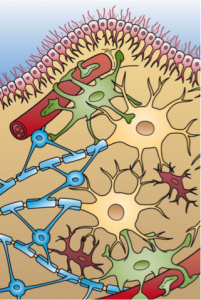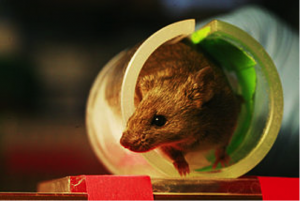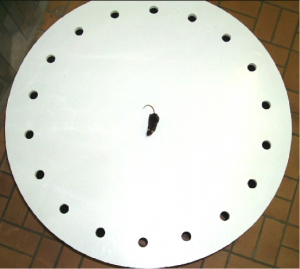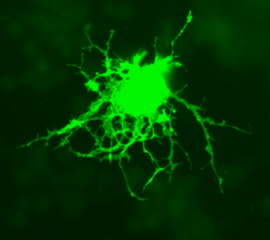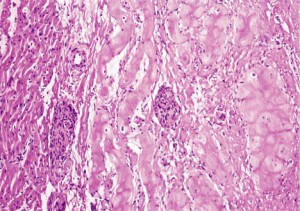You may not have worried too much about Pinky and The Brain actually taking over the world in the past, but with a new procedure that transplants human brain cells into mice, the 90s cartoon may not be too far off.
Humans have two major types of cells in their brain. Neuron cells are responsible for sending electrical and chemical signals throughout your nervous system. Until now, the other type of cell has been largely ignored in regards to communication and learning. These glial cells have been thought of as structural cells that provide protection and support for neurons. The typical jobs of glial cells (purple, green and blue cells), supporting and protecting the neurons (yellow cells), are pictured below.
Researchers from the University of Rochester performed an experiment in which they transplanted human glial cells into newborn mice. When these mice reached adulthood, human glial cells had replaced a large percentage of the mice brain cells in the front areas of their brains.
Testing of these mice revealed that they had an enhanced ability to learn. Analysis of their learning abilities was done using a variety of techniques, such as the Barnes maze test (pictured below). In this test mice are placed on a circular surface with visual cues on the board and many holes around the edge. The mice must locate and remember, based on the visuals provided, the hole that it can use as an escape route from the circular platform. Mice with transplanted human cells demonstrated a shorter time in completing this task. As well, they made fewer errors (choosing the wrong hole to try and escape) when completing the task.
This experiment indicates that human glial cells enhance learning and the brains ability to make new connections (neuroplasticity) in mice. In addition to creating super smart mice, this procedure also shed some light on the potential functions of glial cells in humans.
You can go to NPR and listen to an interview about neurons, glial cells and this research by clicking here
What does this mean for the human brain? The human brain is creating new connections and pathways every time you remember something or have a new thought. How much of this is strictly because of neurons, and how much relates to glial cells?
The evidence from this experiment supports the idea that the evolution of the human brain may be dependent on glial cells, and not just neurons. With this new information researchers need to evaluate what they believe the functions of glial cells actually are. Are they lowly structural cells or much more than that?
– Miranda Marchand

